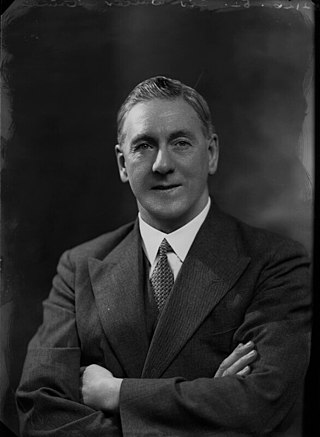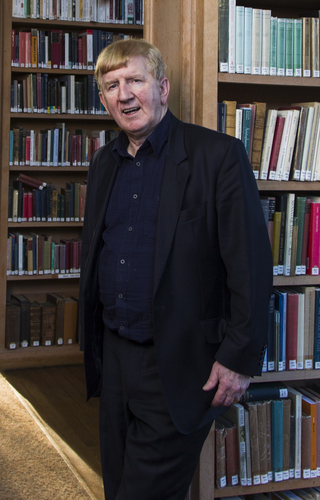Related Research Articles
The Iraqi Federation of Trade Unions (IFTU) was the largest union federation in Iraq in the first half of the 2000s and, under Decree No. 16 in January 2004, the only one recognized by the Iraqi government. This, along with the organization's alliance with Ayad Allawi's transitional government, many other labor organizations distrusted and criticized the IFTU. In 2005, IFTU claimed 12 national unions and over 200,000 members, though it merged with three other union federations to form the General Federation of Iraqi Workers in 2006.

Walter McLennan Citrine, 1st Baron Citrine, was one of the leading British and international trade unionists of the twentieth century and a notable public figure. Yet, apart from his renowned guide to the conduct of meetings, ABC of Chairmanship, he has been little spoken of in the history of the labour movement. More recently, labour historians have begun to re-assess Citrine's role.
Community is a British trade union which formed in 2004. The union represents workers in a diverse range of sectors, including iron and steel, justice and custodial, domestic appliance manufacturing, textiles and footwear, road transport, betting, the third sector, education and early years as well as the self-employed.

Fred Bramley was the second General Secretary of the British Trade Union Congress (TUC).
Bryan Capewell Stanley was a British trade union leader.

The International Federation of Trade Unions was an international organization of trade unions, existing between 1919 and 1945. IFTU had its roots in the pre-war IFTU.
William Bromfield was an English trade unionist and Labour Party politician from Leek in Staffordshire. He was the town's Member of Parliament (MP) for all but four of the years between 1918 and 1945.
The 1919 St Albans by-election was a parliamentary by-election held in England in December 1919 for the House of Commons constituency of St Albans in Hertfordshire.

Sir Ben Turner CBE was an English trade unionist and Labour Party Member of Parliament (MP) for Batley and Morley from 1922 to 1924 and from 1929 to 1931.
Sir Joseph Hallsworth was a British trade union leader.

Albert Arthur "Alf" Purcell was a British trade unionist and Labour Party politician. He was a founding member of the Communist Party of Great Britain and later President of the International Federation of Trade Unions from 1924 to 1928 and sat in the House of Commons during two separate periods between 1923 and 1929.

The Trades Union Congress (TUC) is a national trade union centre, a federation of trade unions that collectively represent most unionised workers in England and Wales. There are 48 affiliated unions with a total of about 5.5 million members. Paul Nowak is the TUC's current General Secretary, serving from January 2023.
William Holmes was a British trade unionist and Labour Party politician.

William Archibald Appleton was a British trade union leader.

Jim Moher was a national trade union figure with two major unions from 1974 to 2006. In that time, he served in a number of capacities - legal adviser and representative ; senior occupational pensions negotiator; National Legal Secretary; National Balloting Officer, National Political Officer and Employment Tribunal representative panel director. As the CWU's Political Officer, he was at the centre of their very successful political effort to assist Labour win the 1997 general election. He was also involved with the Labour leadership in policy formulation on employment law for government but was disappointed by their failure to reform most of the legislation against trade unions of previous Conservative governments. In 1995, his booklet, entitled, Trade Unions and the Law - the politics of change, published by the Institute of Employment Rights, reviewed the history of these laws and made some suggestions for significant improvements in workers and union rights.
George Henry Bagnall CBE was a British trade unionist.
The History of trade unions in the United Kingdom covers British trade union organisation, activity, ideas, politics, and impact, from the early 19th century to the recent past. For current status see Trade unions in the United Kingdom.
Joseph George Butler was a British politician and trade unionist, who served on London County Council (LCC).
Walter Schevenels was a Belgian trade union official.

Corneille Mertens was a Belgian trade unionist and politician.
References
- 1 2 3 The Labour Who's Who. London: Labour Publishing Company. 1924. p. 29.
- ↑ "St. Albans Nominations: Three-Cornered Contest". The Times. 3 December 1919.
- 1 2 Goethem, Geert van (2006). The Amsterdam International: the world of the International Federation of Trade Unions (IFTU), 1913-1945. Ashgate Publishing. pp. 34–40. ISBN 978-0-7546-5254-0.